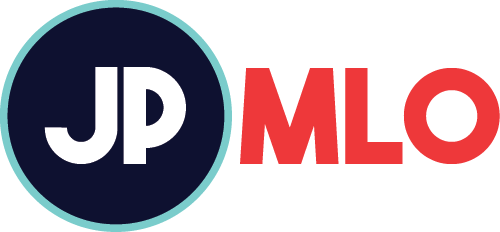The mortgage industry has overgone several changes over the last couple of decades. As a mortgage industry professional, it has never been more important to stay abreast of new regulations and guidelines… especially if you are just beginning your career as a licensed mortgage loan originator.
There are several pieces of legislation that impact your role as a licensed MLO. However, one of the most important federal laws to be aware of is the Secure and Fair Enforcement for Mortgage Licensing (SAFE) Act.
Often referred to as the SAFE Mortgage Act, this federal law has a direct impact on the standard minimum licensing requirements for anyone looking to become a federal and state-licensed mortgage loan originator with the NMLS.
Complying with the SAFE Mortgage Act is very important. Specifically, it outlines key requirements for those individuals doing business as mortgage loan originators. If you are looking to build a career as a licensed MLO, here is how the SAFE Act may impact you.
A Brief History: Secure and Fair Enforcement for Mortgage Licensing Act (SAFE Act)
The Secure and Fair Enforcement for Mortgage Licensing Act (SAFE Act) was put into law on July 30, 2008, with the goal of providing additional consumer protections to borrowers and reducing fraud by setting required minimum licensing standards for individuals engaging in the business of residential mortgage loan origination.
The SAFE Act was part of the sweeping reform that the federal government imposed on the mortgage and housing industries to help increase transparency and standardize fair business practices.
In 2010, other regulatory agencies including the FDIC and NCUA also passed similar regulations that required SAFE Act federal registration for certain individuals, institutions, and employees of institutions working in an MLO capacity.1
Rule-making authority for the SAFE Act now falls under the Consumer Financial Protection Bureau (CFPB) established Regulation G, also known as the SAFE Mortgage Licensing Act-Federal Registration of Residential Mortgage Loan Originators.1
How Does the SAFE Act Define Mortgage Loan Originator (MLO)?
The SAFE Act has specific language for defining who is and who isn’t considered to be a mortgage loan originator or MLO. It’s important to understand the differences to ensure you are following federal and state policies.
The SAFE Mortgage Act considers someone to be a mortgage loan originator or MLO if they take a residential mortgage application and offer or negotiate the terms of a residential mortgage loan for money or other benefit.1
There are several instances where individuals may not be considered mortgage loan originators (MLO). For starters, if you only perform purely administrative or clerical tasks (as defined by the CFPB) on behalf of a mortgage loan originator then you may not necessarily be considered a mortgage loan originator yourself.1
Additionally, individuals that solely take part in real estate brokerage activities and are licensed or registered as real estate brokers are not considered MLOs (unless compensated by an agent of a lender, mortgage broker, or MLO).1
Lastly, there are different rules with respect to the timeshare industry. If you engage in only extending credit related to time-share plans, then there is also a chance you are also not considered a mortgage loan originator.1
SAFE Mortgage MLO Licensing Requirements
One of the biggest ways that the SAFE Mortgage Act impacts mortgage loan originators is by mandating certain requirements for anyone working as an MLO. Mortgage loan originators must complete specific federal and state criteria in order to become licensed MLOs.
MLO Pre-Licensure Education
As part of the licensure requirements outlined by the SAFE Act, all individuals looking to become a licensed mortgage loan originator must complete a minimum of 20 hours of MLO pre-license education through an NMLS-approved provider.2
A portion of this pre-license education training must include a minimum of 3 hours covering federal law and regulations, 3 hours of ethics training (topics including fraud, consumer protection, and fair lending), and 2 hours of content surrounding non-traditional mortgage lending standards.2
But that’s not all. The SAFE Act also requires all state-licensed MLOs to meet required pre-licensure education requirements which may or may not align with the federal minimum requirements. In some cases, MLOs must complete even more pre-license education training hours or coursework covering specific topics.
It’s important to research your individual state licensing requirement to ensure you are in compliance with all aspects of the SAFE Act’s pre-licensing education guidelines.
Using the right NMLS-approved provider like JPMLO, which offers a consolidated coursework package that meets both federal and state requirements, can make complying with these guidelines easier.
NMLS MLO Licensing Exam
Another component to complying with the SAFE Act requirements for becoming an NMLS-licensed MLO is that all individuals are required to pass a national mortgage exam. You can pass the exam with a score of 75% or better.2
Content on the exam will relate to topics covered in your MLO pre-license education training, which is why many MLO applicants wait to take the exam until after they have completed their MLO pre-license education training.
Nevertheless, the NMLS reports that only a little more than half of all prospective MLOs that take the SAFE MLO test pass the exam on their first attempt.3
Criminal History Background and Credit Checks
The SAFE Act has specific standards for professionals licensed as mortgage loan originators including verifying an individual’s background and credit history.
As part of the due diligence process, all MLO license applicants must submit authorization for a criminal history background check. Fingerprints must also be submitted as part of the review process.2
To become a state-licensed mortgage loan originator, individuals cannot have had any felonies in the past 7 years or have ever had a past felony related to fraud, money laundering, or breach of trust.2
Similarly, licensing standards require a credit check to substantiate any mortgage loan originator applicant’s financial responsibility. This authorization can be submitted directly through your NMLS account.2
SAFE Mortgage Act MLO Continuing Education
The SAFE Act not only outlines the minimum requirements for any prospective mortgage loan originator to obtain their MLO license, but it also discloses the ongoing requirements for individuals looking to maintain their license.
Part of the requirements for keeping your MLO license in good standing is to complete annual MLO continuing education (CE) training. Federal and state law requires all MLOs to complete a minimum of 8 hours of continuing education training, although some states can require additional hours or specific coursework.
Failure to complete your annual MLO CE training can result in a suspension or revocation of your MLO license as well as incur monetary penalties.
For example, in early 2022 over four hundred mortgage loan originators across the country had to surrender their MLO licenses for three months and pay a fine of $1,000 for each state they were licensed for deceptively claiming they completed their annual CE training requirements when they had not.4
Ensure you are always in compliance with the SAFE Act’s continuing education requirements by completing your annual CE training through an NMLS-approved provider.
JPMLO makes completing your pre-license and continuing education easy by offering mortgage loan originators full, online self-study courses that incorporate a mixture of interactive media, videos, and downloadable resources that cater to any client’s learning style.
Sources
1 Consumer Financial Protection Bureau. (2012, October). CFPB Consumer Laws and Regulation – SAFE Act. Retrieved October 20, 2022, from https://files.consumerfinance.gov/f/documents/102012_cfpb_secure-fair-enforcement-for-mortgage-licensing-safe-act_procedures.pdf
2 State Regulatory Registry LLC. (2009, September). State Licensed Mortgage Loan Originator Requirements and Standards under the S.A.F.E. Act. Retrieved October 20, 2022, from https://mortgage.nationwidelicensingsystem.org/SAFE/NMLS%20Document%20Library/MLO-Requirements-SAFE.pdf
3 NMLS. (n.d.). Test Performance Information. NMLS Portal. Retrieved October 20, 2022, from https://nmlsportal.csbs.org/csm?id=kb_article_view
4 State Regulators Settle with Hundreds of Mortgage Loan Originators over SAFE Act Education Requirements. (n.d.). CSBS. Retrieved October 20, 2022, from https://www.csbs.org/newsroom/state-regulators-settle-hundreds-mortgage-loan-originators-over-safe-act-education

